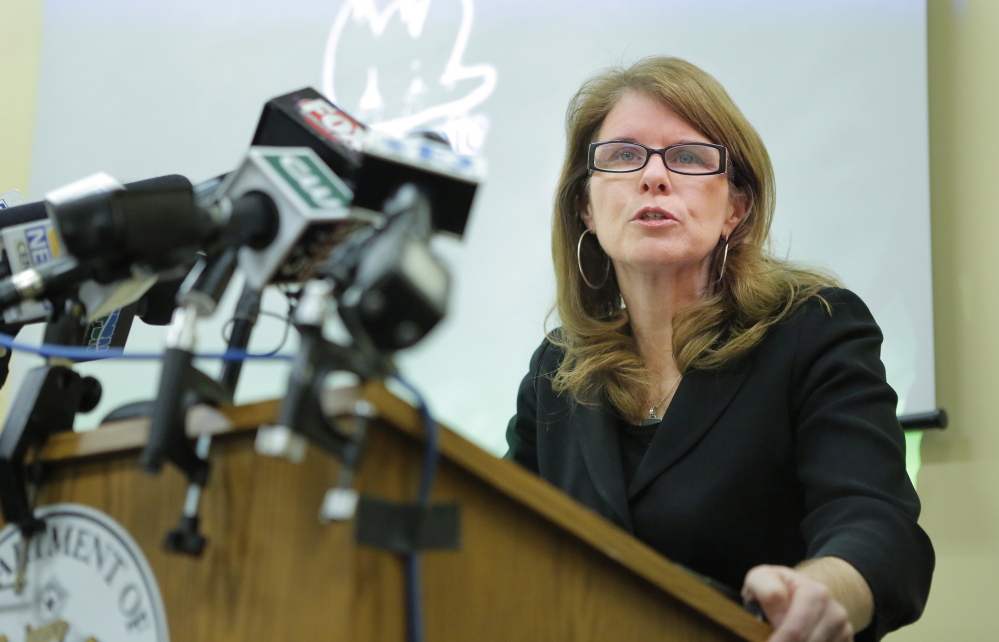The Legislature’s Government Oversight Committee has agreed to take a deeper look at spending by the Fund for a Healthy Maine, including whether any money from the $54 million program goes to Planned Parenthood.
It will be the second legislative inquiry this year into the program, which is funded largely by annual disbursements from the 1998 multistate settlement with four major U.S. tobacco companies.
The first review, conducted by the Health and Human Services Committee, concluded Monday with little to show for its effort. The committee had no findings or recommendations, despite holding four meetings and interviewing advocates, budget writers and vendors who provide services under contract with the Department of Health and Human Services.
The panel also tried to obtain information about program contracts from the DHHS, but the department did not supply it, with Commissioner Mary Mayhew saying that the DHHS is focused on managing its operations, and that state government needs fewer studies.
DOING ITS OWN OVERSIGHT
On Thursday, the oversight committee voted 11-1 to initiate its own inquiry into the fund. The review was requested in September by Republican Senate Majority Leader Garrett Mason of Lisbon Falls and Rep. Jeff Timberlake, R-Turner. Unlike the Health and Human Services Committee review, the request by Timberlake and Mason includes a specific focus on whether any Fund for a Healthy Maine allocations go to Planned Parenthood and, if so, how that money is spent.
Nicole Clegg, a spokeswoman for Planned Parenthood of Northern New England, said Friday that the organization receives no state allocations from the fund.
Planned Parenthood came under fire from Republicans for providing fetal tissue to scientists after anti-abortion advocates released secretly recorded videos this summer of organization officials discussing the practice and accused it of illegally providing the tissue for profit. Planned Parenthood says it has done nothing illegal and that the videos were edited to make it appear it had.
Republican presidential candidates have called for eliminating federal funding to Planned Parenthood, creating a sharp contrast with the Democratic presidential hopefuls who defend it.
The Republican-controlled U.S. Senate passed a bill Thursday to overturn the Affordable Care Act, and included a provision to defund Planned Parenthood. The measure is sure to pass in the Republican-controlled House but will be vetoed by President Obama.
Timberlake downplayed the focus on Planned Parenthood on Thursday, when he asked the oversight panel to initiate an audit of the Fund for Healthy Maine by the Office of Program Evaluation and Government Accountability, the Legislature’s watchdog agency.
He said the audit request is nonpartisan and designed strictly to obtain a full accounting of spending in the program.
MORE THAN SMOKING CESSATION
The fund was designed to improve health through a variety of programs, including smoking cessation and prevention. However, it now funds a broad array of health initiatives, including childhood nutrition, substance abuse treatment and prevention and, to an increasing extent, to support MaineCare, the state’s version of Medicaid.
In 2008-2009, MaineCare allocations consumed about 12 percent of all allocations from the fund. It’s now over 50 percent, or $25.9 million annually, according to data from the Legislature’s nonpartisan budget office.
Maine has historically been among the national leaders in devoting tobacco settlement money to smoking cessation and prevention. In 2015, the state ranked seventh in spending on smoking cessation and prevention as a percentage of settlement money. However, the ranking can be misleading because many states spend little on tobacco-related programs.
Timberlake and Mason aren’t the first lawmakers to be curious about allocations from the fund. In 2011, OPEGA, at the request of the oversight committee, made several recommendations to improve oversight and accounting of fund expenditures. Most of those recommendations became laws when the Republican-controlled Legislature passed them in 2012.
However, the human services committee learned in September that two of the 2012 laws were never implemented. One required state agencies, contractors and vendors receiving funding from the program to track, detail and justify how the money is spent. The law required the commissioner of the Department of Administrative and Financial Services to compile the reports and provide them to the Legislature, which has the final say over funding for the program.
The revelation that the law was never implemented prompted the financial services department to provide the committee with a summary report of the funding allocations, but it did not contain detailed information about how vendors spent the money.
LEGISLATORS SEEK DETAILS
Although vendors appeared before the committee to explain their use of the funds, lawmakers on the panel said they didn’t receive adequate information and cooperation from DHHS, which oversees the vendors.
Rep. Drew Gattine, D-Westbrook, co-chairman of the human services committee, told the oversight panel Monday that unless DHHS explains how it’s spending the money and holding vendors accountable, lawmakers cannot evaluate whether the spending is effective. The committee has endorsed a requirement that DHHS provide a detailed annual report on the program to the Legislature.
The human services committee’s frustrations with DHHS reflect the cool relationship between Gov. Paul LePage and the Legislature. In October, the governor set a new policy that limits the flow of information between the executive branch and legislators. The policy requires legislative committees to approach the governor’s office with requests for agency heads to appear before the Legislature.
That policy prompted the oversight committee to vote 11-1 to subpoena DHHS commissioner Mayhew and another top official Thursday if the two don’t voluntarily appear before the panel to discuss persistent problems at the Riverview Psychiatric Center.
Mayhew told OPEGA, the watchdog agency, on Friday that she and Riverview Superintendent Jay Harper would appear at the oversight committee’s Jan. 22 meeting.
The oversight committee could be forced to issue another subpoena threat if DHHS officials don’t cooperate with the Fund for a Healthy Maine inquiry.
Send questions/comments to the editors.



Comments are no longer available on this story